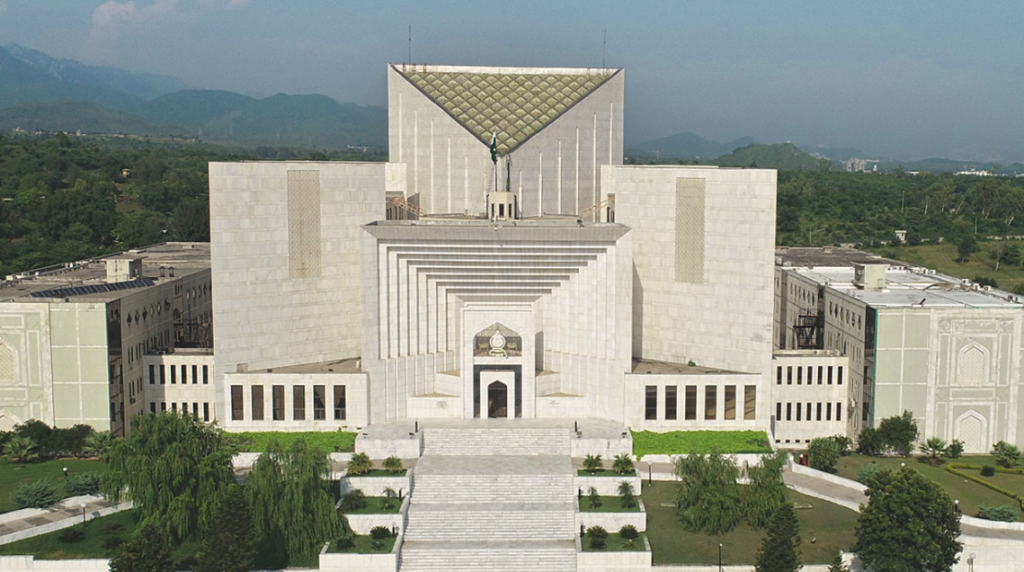Judges Halt Appointments Case
“Judges Halt Appointments Case” – On Friday, four Supreme Court justices urged Chief Justice of Pakistan (CJP) Yahya Afridi to delay eight appointments to the apex court until they resolved the challenges to the 26th Constitutional Amendment.
Judicial Commission of Pakistan’s Meeting
The Judicial Commission of Pakistan (JCP) will meet on February 11 to consider filling eight vacant Supreme Court judges’ seats. The JCP approves judicial appointments. The Constitution (Twenty-sixth Amendment) Act, 2024, reconstituted it to include four members of parliament and brought numerous changes to the judiciary. The Supreme Court’s Constitutional Bench has challenged the amendment; however, there are calls for a full court to hear the matter.
The Judges Request
SC senior puisne judge Justice Mansoor Ali Shah and Justices Munib Akhtar, Athar Minallah, and Ayesha Malik signed the letter.
Concerns Raised
“The letter requests that the authorities postpone the scheduled meeting and the appointment of eight new judges until they decide the challenge to the 26th Constitutional Amendment one way or the other.”
The judges pointed out that the challenges to the 26th Amendment were lingering and languishing before the Constitutional Bench. “For diverse reasons, these challenges needed to be dealt with by the full court urgently and immediately.”
Impact on Public Trust
The judges said the above development could “further imperil and erode the public trust and confidence reposed in the institution.” They pointed out that public trust in the judiciary currently hinges “crucially” on how authorities deal with pleas against the amendment.
Potential Dilemma
“The dilemma that will be created if the meeting goes ahead can be stated as follows. If the Constitutional Bench accepts the applications and directs the convening of the full court to hear and decide the challenges to the amendment, the question will then inevitably arise as to who will comprise the full court for such purpose.”
This situation, according to the judges, could give rise to a public perception of court packing, which would severely damage the image of the highest institution of justice in the country.
Call for Careful Consideration
The four judges urged that the apex court must carefully consider the full court’s timing and composition to preserve its integrity and credibility.
“Yet, the holding of the meeting may preclude, if not effectively eliminate, precisely any such possibility. Any decision rendered by the full court, if at all constituted after the induction of new judges, may well fail to command public trust and confidence. The only viable solution and option in the present circumstances is therefore to postpone the meeting,” the judges reasoned.
Developments in the Islamabad High Court (IHC)
The letter also discussed recent developments in the IHC, including the transfer of new judges and a reshuffling of the seniority order. It said the absence of an oath-taking ceremony made the transfers “suspect.”
Implications for JCP Meeting
The apex court judges stated that the developments in the IHC would have “certain consequences” for the JCP meeting because the five most senior judges of each high court make nominations for Supreme Court justices.
“How can this be? How can a judge who would never qualify for any such consideration in his high court suddenly become eligible for consideration for the Supreme Court due to the alchemy of a prima facie constitutionally suspect and defective transfer? The letter concluded that one cannot achieve indirectly what cannot be achieved directly.
The “Judges Halt Appointments Case” highlights the complexities and challenges the judiciary faces in maintaining public trust and confidence.



